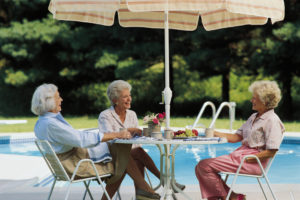 Tam came home after a long, successful day at work. Well respected among his colleagues and managers, and well liked among his friends, Tam had everything going for him. Yet this evening when he stepped into his apartment, he was surprised by the sinking feeling in his heart and the sense of loneliness. “Come on, Tam,” he said to himself. “This is pathetic, man. Stop being so weak.”
Tam came home after a long, successful day at work. Well respected among his colleagues and managers, and well liked among his friends, Tam had everything going for him. Yet this evening when he stepped into his apartment, he was surprised by the sinking feeling in his heart and the sense of loneliness. “Come on, Tam,” he said to himself. “This is pathetic, man. Stop being so weak.”
Have you ever experienced something similar where you felt ashamed or embarrassed for feeling lonely and needing a friend to hang out with? Over the past few years, I’ve noticed a prevalent tension many people seem to have toward this impulse for social engagement and connection. Part of it seems to come from cultural expectations of independence, a kind of internalized and intellectual inhibition that does not include room for natural social needs. Quite often, I’ve heard people express things such as “What’s wrong with me? Why do I need people around me?”
Let me respond to that for you: Nothing. There’s nothing wrong with you.
The desire for social connection is perfectly natural. Not only that, but listening to this need is for your own good.
Unfortunately, popular culture can sometimes give messages that place value on behaviors that go against our basic needs and inherent mechanisms for resilience. Which is why this inhibition is an intellectual one as opposed to a natural one. While the image of the admirable “lone ranger” and solo superhero saving the world can inspire self-confidence to trust in our ability as individuals—which, of course, is great—it can also be misleading about our natural instinct to engage, connect, and belong.
We are wired for social engagement and co-regulation. Just like eating and drinking are basic needs, social engagement is also a basic need for us to survive and thrive. Neuroscience and interpersonal neurobiology are discovering patterns that support the understanding that we are predisposed for, and dependent on, social engagement and connection. For instance, neuroscience research shows us the social environment is critical for the acceleration and progression of brain maturation. According to their observations of babies’ brains, adequate social engagement leads to healthy brain growth.
Interestingly, at first, most of the neural networking activity occurs in the right hemisphere of the brain. Research has linked the right brain to major psychophysiological regulatory systems such as our cardiovascular system (our heart) and our endocrine system (our hormones). When parents are regulated, their regulated nervous system communicates with the baby’s right brain and the co-regulation process sets the foundation for psychophysiological regulation in the baby. This is the basis by which infants’ systems learn to react and respond to the environment in order to survive, achieve optimal regulation, and thrive.
This amazing positive effect of social engagement on our well-being continues throughout life. For instance, researchers found that senior participants who had healthy social connection had reduced and delayed memory decline in old age as compared to those who were more isolated. Studies following individuals diagnosed with serious medical conditions found social support to increase the resiliency and reduce cortisol levels. Experiments comparing a group of participants exposed to stress with social support to participants exposed to stress in isolation also found an advantageous influence. The former group had lower increases in their heart rate, blood pressure, and cortisol levels when exposed to the stressor as compared to the participants who were on their own.
When you feel loneliness, thank your body for giving you the signal it is time for some social engagement. Just like feeling hungry is an inherent signal your body gives you to compel you to get something to eat, that restless or heavy feeling caused by loneliness is similarly an inherent mechanism spurring you to nourish your system with social engagement and connection.
Why is any of this important? Because healthy heart rate, blood pressure, and cortisol levels impact overall health and longevity. This could explain the findings of a longitudinal study by Harvard University which discovered that participants who were alone or lonely had more health problems, while participants who were in satisfying relationships were happier and lived longer.
The co-regulation we experience through social interactions protects us from becoming overwhelmed by life and can support us to be in our optimal zone of regulation where we can think, imagine, and create. We are also able to enhance our positive experiences through the capitalizing effect—the process of maximizing the experience of a positive event through the act of sharing it and “celebrating” it with our partner. It stands to reason, then, that social engagement is both a resiliency agent that enhances our ability to survive stress, and a thriving agent that adds to the quality to life.
So next time you feel uneasy about feeling lonely, consider that your “dis-ease” is merely a false intellectual construct that is misinterpreting what is natural and healthy. When you feel loneliness, thank your body for giving you the signal it is time for some social engagement. Just like feeling hungry is an inherent signal your body gives you to compel you to get something to eat, that restless or heavy feeling caused by loneliness is similarly an inherent mechanism spurring you to nourish your system with social engagement and connection.
So whenever loneliness knocks on your door, take it easy, respond to your needs, and let yourself nourish.
Tips and Ideas
We may differ in the urgency, frequency, and ways we long for things. Some of us may identify as introverts, others as extroverts, and some as ambiverts. Whatever the case, trust your longing for social engagement. Here are a few tips for finding opportunities for social engagement:
- Be the initiator: Sometimes that friend you haven’t heard from in a while could simply be overwhelmed at work or shy. In fact, they might welcome the contact and invitation to come out and play.
- Mix it up: An easy evening out for a drink or a bite can sometimes be exactly what you need. For the days you’re feeling a little low or insecure on the conversation side, going to the movies could be just the ticket. Or when you’re feeling more playful or active, you might consider bowling or hiking. There are many possibilities.
- Engage through hobbies: Meeting people who you share a common interest with can create a safe and fun place from which to start the conversation. You could join a baking group if you’re into baking, a book club if you’re into reading, or start your own group for an activity you enjoy. And if you’re not sure what your hobbies are, no problem. You can have fun trying new things too!
If you’re feeling a higher level of despair and isolation, the above tips might be more challenging at this time and feel a little more out of reach. If there is one person you feel comfortable being with in this period, you may consider starting there. And, as always, you might consider seeking the support of a mental health professional to help get you through this period in your life.
References:
- Gable, S. L., Reis, H. T., Impett, E., & Asher, E. R. (2004). What do you do when things go right? The intrapersonal and interpersonal benefits of sharing positive events. Journal of Personality and Social Psychology, 87, 228-245.
- Krueger, K. R., Wilson, R. S., Kamenetsky, J. M., Barnes, L. L., Bienias, J. L., & Bennett, D. A. (2009). Social engagement and cognitive function in old age. Experimental Aging Research, 35(1), 45–60.
- Mineo, L. (2017, April 11). Good genes are nice, but joy is better. Harvard Gazette. Retrieved from http://news.harvard.edu/gazette
- Ozbay, F., Johnson, D. C., Dimoulas, E., Morgan, C. A., Charney, D., & Southwick, S. (2007). Social support and resilience to stress: From neurobiology to clinical practice. Psychiatry (Edgmont), 4(5), 35–40.
- Schore, A. N. (2005). Attachment, affect regulation, and the developing right brain: Linking developmental neuroscience to pediatrics. Pediatrics In Review, 26, 204–211.
- Turner-Cobb, J. M., Sephton, S. E., Koopman, C., Blake-Mortimer, J., & Spiegel, D. (2000). Social support and salivary cortisol in women with metastatic breast cancer. Psychosomatic Medicine, 62, 337–345.
© Copyright 2017 GoodTherapy.org. All rights reserved. Permission to publish granted by Nora Sabahat Takieddine, SEP, EMDR Trained, GoodTherapy.org Topic Expert
The preceding article was solely written by the author named above. Any views and opinions expressed are not necessarily shared by GoodTherapy.org. Questions or concerns about the preceding article can be directed to the author or posted as a comment below.

 Connected but Still Alone: Understanding and Overcoming Loneliness
Connected but Still Alone: Understanding and Overcoming Loneliness 3 Strategies to Get You Through Your Next Social Event
3 Strategies to Get You Through Your Next Social Event How to Recover from the Stagnation and Deadness of Isolation
How to Recover from the Stagnation and Deadness of Isolation